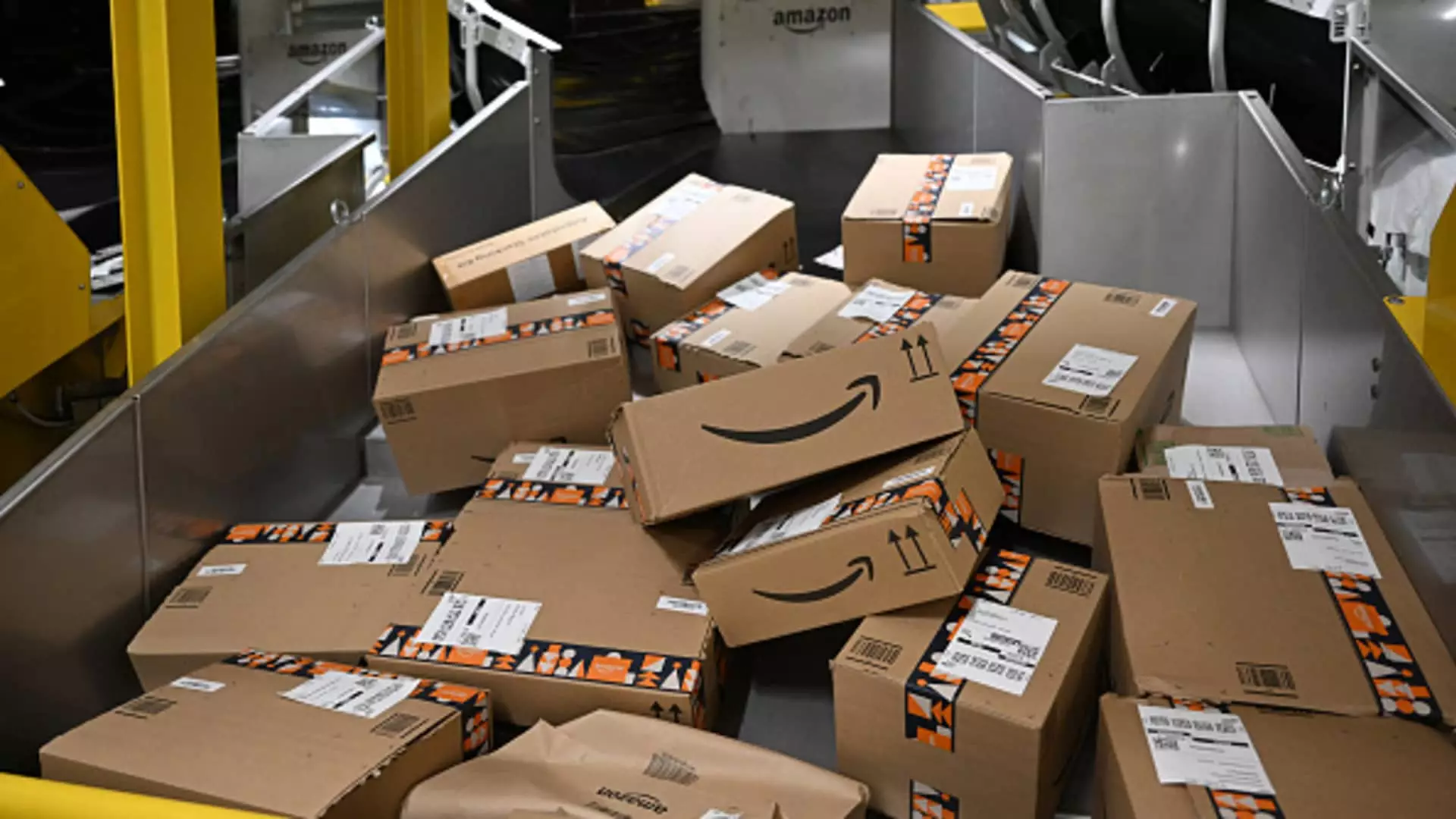In the world of e-commerce, Amazon has emerged as a formidable giant that influences how countless sellers operate. However, recent warnings from German antitrust regulators illuminate a troubling undercurrent beneath Amazon’s glossy marketplace facade. The Federal Cartel Office’s preliminary assessment claims that Amazon’s pricing mechanisms could undermine competition laws, raising suspicions about fairness and transparency that must be critically examined.
Opaque Algorithms: A Recipe for Unfair Competition
At the heart of the Federal Cartel Office’s concerns is Amazon’s reliance on intricate algorithms and statistical models to dictate price ceilings for third-party sellers. This automated approach, far from benign, risks constructing a price control system that favors Amazon’s interests over those of independent merchants. By flagging products with “uncompetitive” prices and relegating them in search results, Amazon jeopardizes the very essence of a free market—where consumers should be empowered to choose based on genuine competition, not an artificially curated selection shaped by a corporate behemoth.
Mundt, the President of the Federal Cartel Office, aptly pointed out that Amazon competes directly with marketplace retailers operating on its platform. This dual role of Amazon as both a marketplace and a competitor creates a hazardous conflict of interest. When the same entity that governs marketplace rules also determines which prices are “acceptable,” the potential for abuse becomes apparent. Such mechanisms are not just guidelines; they are tools that can disrupt entrepreneurial vitality.
The Buy Box Dilemma: A Strategic Advantage for Amazon
Central to this discourse is the “buy box”—the coveted digital spot that prominently displays a product option when customers search. When sellers face demotion for pricing their items too high, or even too low, they are entrapped in a cycle predicated on Amazon’s dynamic regulations. This system not only hinders sellers’ autonomy but can also deter them from offering competitive pricing altogether, ultimately leading to inflated costs for consumers.
Amazon’s response to these allegations has been as predictable as it is disappointing. The company argues that regulating its pricing processes would lead to a subpar shopping experience, claiming that customers would be misled into thinking they were receiving good deals when they were not. Such justification merely skims the surface of a larger problem. By cloaking its practices in consumer-oriented language, Amazon effectively sidesteps accountability.
Broader Implications: E-Commerce’s Future at Stake
The ramifications of Amazon’s price control tactics extend beyond individual sellers. If Amazon can manipulate visibility based solely on arbitrary price thresholds, it creates a precedent that could cripple competition across other sectors of the e-commerce landscape. A marketplace dominated by one company’s biased rules stifles innovation, cornice pricing practices, and fundamentally dishevels the principles of fair competition and consumer choice.
In this context, antitrust scrutiny is not merely a regulatory formality; it is a necessary intervention that ensures the vibrancy of e-commerce. The European Union and various U.S. entities, including the Federal Trade Commission (FTC), have begun to recognize the critical nature of this battle. As Amazon faces investigations and legal proceedings regarding its pricing practices, we stand at a crossroads—not just for Amazon, but for the entire ecosystem of online retail.
As tensions escalate between regulators and corporate giants, it is essential to hold Amazon accountable for its business practices. The questions raised by the German Federal Cartel Office are not isolated concerns but serve as a litmus test for the future of fair competition in an increasingly digitized marketplace. If we allow monopolistic practices to erode the foundation of open commerce, the erosion of trust will inevitably follow. The stakes are high, and it is time for regulators, consumers, and sellers alike to advocate for equitable practices in e-commerce—a domain that ought to foster innovation, growth, and unadulterated fairness.

